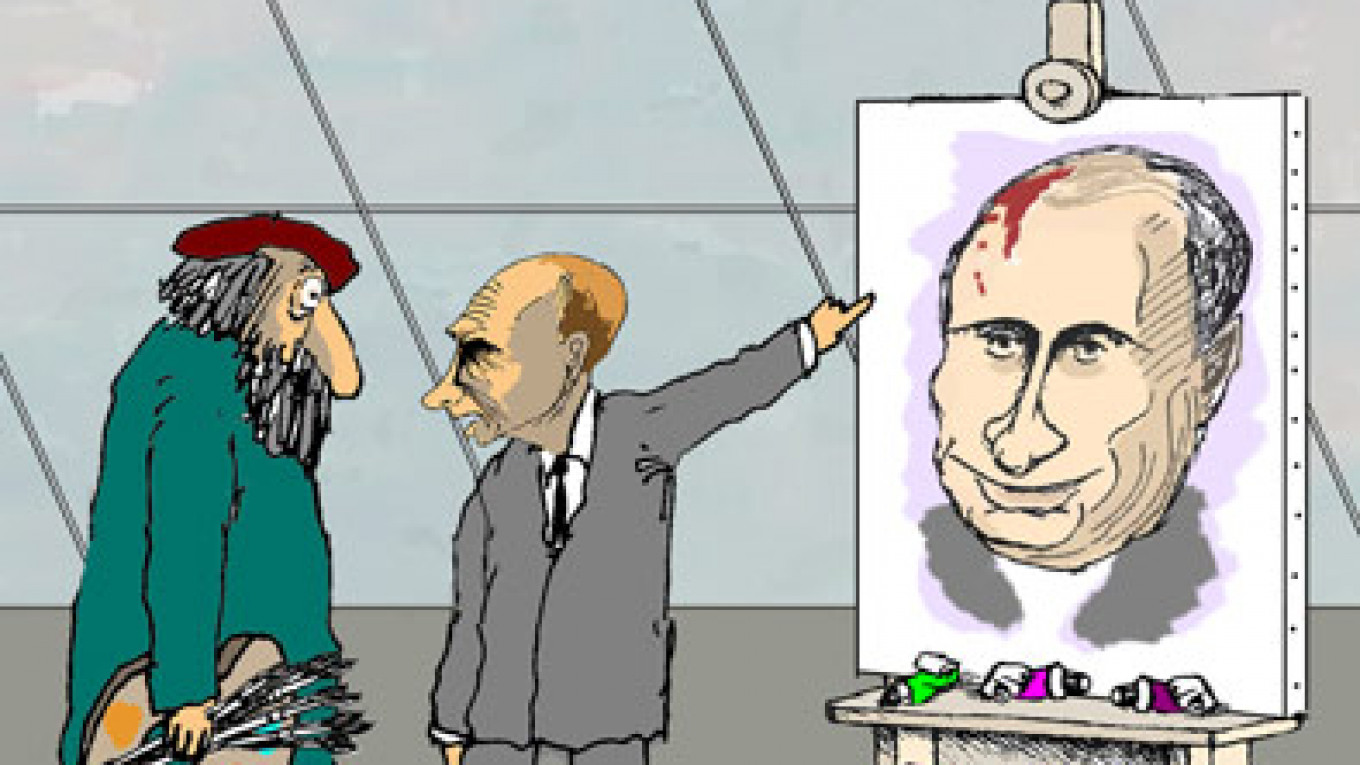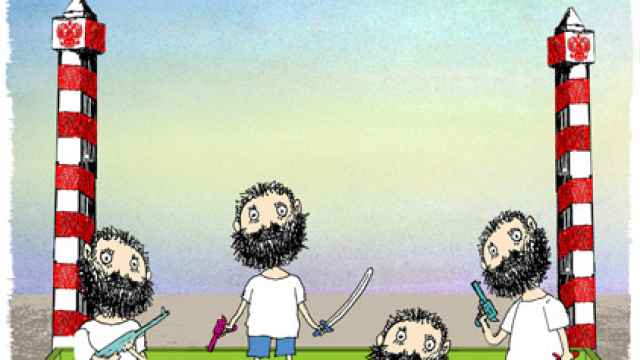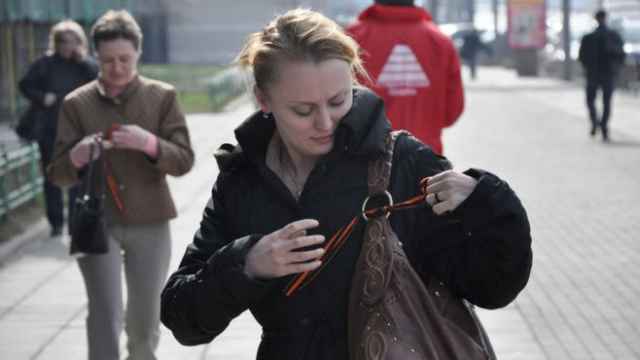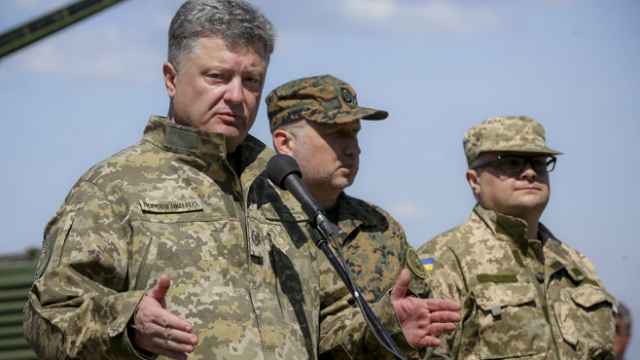A group of Russian scholars presented a report in Moscow in late May called "The values of perestroika in the context of modern Russia" that detailed the risks the country is currently facing. The authors argue that leaders must inevitably restart the reforms first begun by former Soviet leader Mikhail Gorbachev in 1985 — that is, unless they plan to continue pushing Russia toward the backward and unstable periphery of the modern world.
That allusion to perestroika immediately raises some uncomfortable questions. Is the current rise of authoritarianism and the breakdown of basic institutions the logical consequence of Gorbachev's reforms, or is it some strange evolutionary offshoot, a careless wrong turn down a historical blind alley?
Also, how likely is it that the current regime will recognize the need for reforms? Will a new "Gorbachev" emerge from President Vladimir Putin's "politburo," and if so, will he manage to overcome the inertia of his political milieu?
Or will the chance for change come only after the collapse of the current regime? If so, it will prove only illusory due to the almost inevitable political chaos that will result, the emergence of newly emboldened radicals of every stripe and the centrifugal forces that will tend to tear the system apart.
Many in Russia and elsewhere believe that the lyrics to the popular Beatles song "Back in the U.S.S.R." best describe the country's current trajectory. They are mistaken.
Today's Russia bears only a superficial resemblance to the Soviet Union, as anyone with memories of that era can readily testify.
The Soviet Union was characterized by cynicism and doublethink. Its history was marred by repression against its own citizens on a monstrous scale, and its political life bore absolutely no connection to Western notions of democracy, the separation of powers and human rights.
At the same time, the Soviet Union was conceived as a humanistic project. Its system — although burdened by the political monopoly of the Communists and the oversized military-industrial complex — was largely focused on developing what is now called "human capital."
Soviet leaders discussed the use of nuclear weapons exclusively as a means of retaliation, and only archival newspaper stories and newsreels of Stalin's terror reflected the level of vitriol that has become standard fare in Russian television over last year and a half or two.
As naive as it might sound, right up until it ended the Soviet Union remained part of an idealistic global effort to make the world a better place for everyone. The United States and China continue to promote their respective versions of that project, but without the Soviet Union the world has become significantly less stable, and there is far less hope now than there was in the late 1980s that mankind would ultimately achieve a bright and prosperous future.
Despite the rhetorical gymnastics of leaders who publicly wax nostalgic for the Soviet Union, modern Russia is far from considering itself part of a global humanistic project. A huge billboard that appeared in Moscow in May best conveys the political thinking of the current regime. It quotes Pyotr Stolypin, prime minister to Tsar Nicholas II: "They are in need of great upheavals, while we are in need of Great Russia."
The left side, where the word "upheavals" appears, shows photos of the Maidan protests in 2014, with agitated faces and upraised hands grasping firearms. On the right, next to the words "Great Russia," is a photo of the honor guard marching at the Tomb of the Unknown Soldier near the Kremlin.
"Great Russia" is depicted as a Kremlin regiment marching in blindingly high-polished boots before the Tomb of the Unknown Soldier. It is not new roads and factories, evidences of development or symbols of freedom and social justice. Thus, Russia has inherited only one thing from the Soviet Union — the love its leader holds for the pomp of military ceremony.
Modern Russia is not positioning itself as a welfare state: The government now sees it as a burden to feed millions of people directly dependent on the state. Modern Russia is ostensibly trying to invest in development, but its space program is crumbling with every failed rocket launch, and lawmakers are scaring away potential investors with ill-conceived laws.
Modern Russia is definitely not the free and prosperous country that dissidents dreamed it would become when the Soviet regime collapsed in 1991 — but, beyond a doubt, it is also not the Soviet Union. The contours of the social and political system now unfolding before our eyes are far harsher, the political taboos preventing society from degenerating into primitive obscurantism far fewer and the barriers separating the country from the rest of the world far higher.
Meanwhile, the honor guard embodying Great Russia continues marching at the Kremlin walls and the country's nuclear missiles — capable of destroying half the planet — stand ready.
Of course, Gorbachev's perestroika was part of the Soviet humanistic project, and today's Russia emerged not from perestroika, but from the rejection of it. However, that rejection came not from the Russian people, but out of the as-yet-forming political elite that was interested only in its own prosperity and not the common good — much less the welfare of all humanity.
Despite all the political changes of the 1990s, 2000s and 2010s, this consensus remains the same. That is not all bad, considering that it delineates the limits beyond which Russia's prosperity is threatened. For example, the country's economic well-being might even increase, notwithstanding the annexation of Crimea and Western visa bans against selected Russian officials.
But it will falter and ultimately collapse if Moscow opts to endlessly escalate tensions in Ukraine and expand the zone of military conflict there.
The post-Soviet consensus does not imply an excessively aggressive foreign policy, but it does rule out a return to the values of perestroika. Those who define the politics of modern Russia find it much more natural and comfortable to maintain the current course toward isolation and domestic witch hunts.
But in so doing, they risk overstepping the limits beyond which Russia's foreign policy would cease to be guided by logic and common sense.
At best, that could lead to Russia's complete international isolation. At worst, it could lead to a huge, albeit possibly brief, war.
Of course, perestroika is preferable to war, degradation and social and political collapse — but not for those who use those ills to maintain their iron grip over the country and its people.
Ivan Sukhov is a journalist who has covered conflicts in Russia and the CIS for the past 15 years.
A Message from The Moscow Times:
Dear readers,
We are facing unprecedented challenges. Russia's Prosecutor General's Office has designated The Moscow Times as an "undesirable" organization, criminalizing our work and putting our staff at risk of prosecution. This follows our earlier unjust labeling as a "foreign agent."
These actions are direct attempts to silence independent journalism in Russia. The authorities claim our work "discredits the decisions of the Russian leadership." We see things differently: we strive to provide accurate, unbiased reporting on Russia.
We, the journalists of The Moscow Times, refuse to be silenced. But to continue our work, we need your help.
Your support, no matter how small, makes a world of difference. If you can, please support us monthly starting from just $2. It's quick to set up, and every contribution makes a significant impact.
By supporting The Moscow Times, you're defending open, independent journalism in the face of repression. Thank you for standing with us.
Remind me later.






